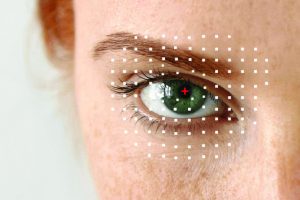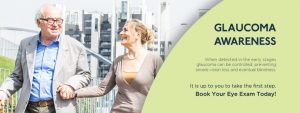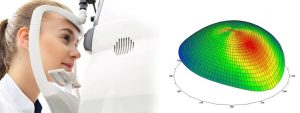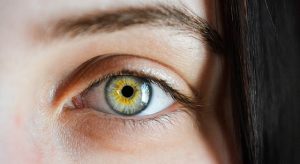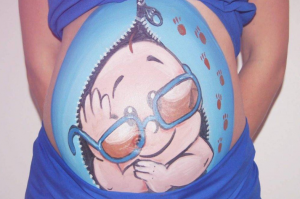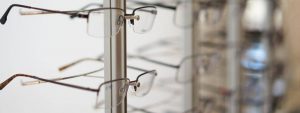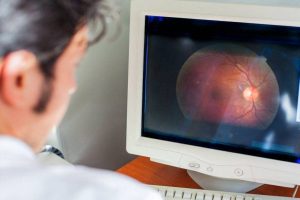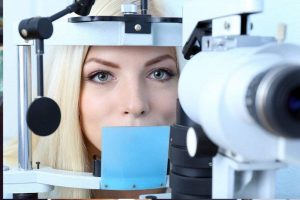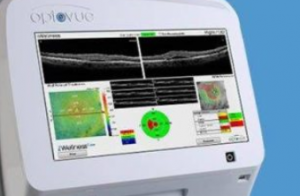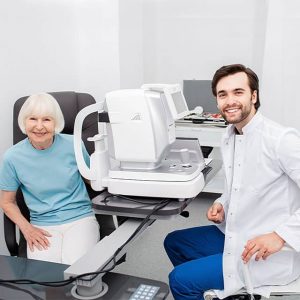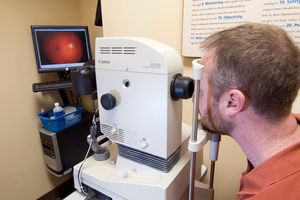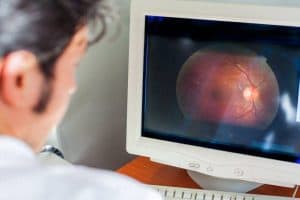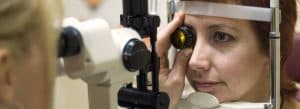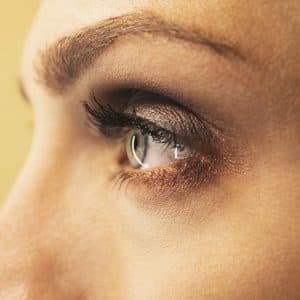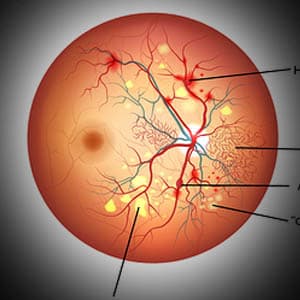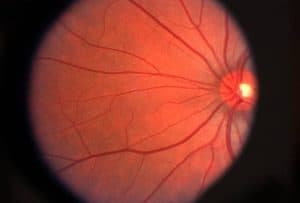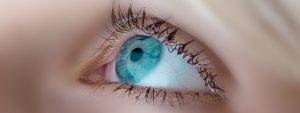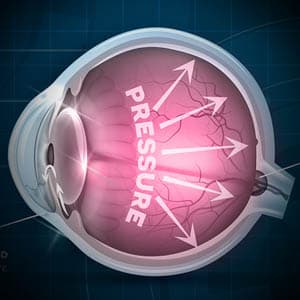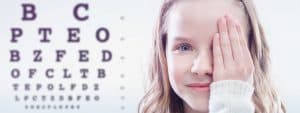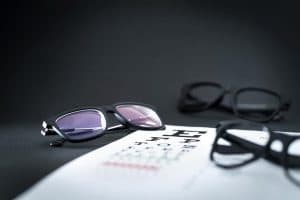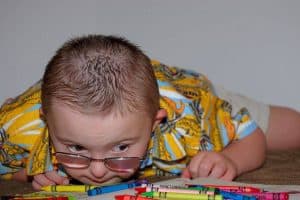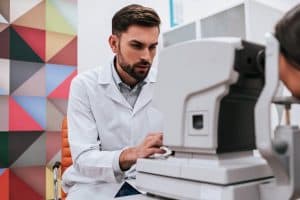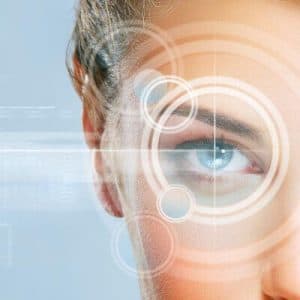When is Blurred Vision a Medical Emergency?
Almost everyone experiences blurry vision. If a headache occurs with or causes blurred vision, it may be due to an underlying condition or medical emergency.
Read MoreGlaucoma, Tunnel Vision and Low Vision
Glaucoma causes ‘Tunnel Vision’ and is one of the leading causes of blindness worldwide. Glaucoma is an eye diseases that damages the optic nerve, leading to permanent vision loss. The most common type of glaucoma shows no early warning signs, and can only be detected during a comprehensive eye exam. If left untreated, glaucoma can cause peripheral vision loss and even permanent blindness.
Read MoreWhat Causes Low Vision In Children?
More than half a million children in North America are blind or have low vision. Having impaired vision makes it difficult to read, play sports,
Read MoreGlaucoma: ‘The Silent Thief of Sight’
Did you know that rock star Bono from U2 has glaucoma? U2’s Bono is not alone, at least 3 million North Americans have glaucoma, but only 50% know they have it! In 95% of glaucoma cases, it starts off asymptomatic and by the time the condition is noticed, the vision loss is irreversible. That’s why regular eye exams are so crucial, even if you don’t suspect a problem.
Read MoreCan Sugar Affect Eye Health?
We all enjoy a sweet treat now and then, but too much sugar in our diet can come at a price. Here’s how eating excessive
Read MoreGlaucoma: Myths and Facts
Do you want the facts on the most common glaucoma myths? More than three million Americans are living with glaucoma, 2.7 million are aged 40 and older.
Read MoreGlaucoma: Can Meditation Help?
Could meditation be the next glaucoma ‘wonder drug’? Can adding meditation to your day help manage your glaucoma? What is Glaucoma? Glaucoma is a common
Read MoreEye Health
Eyes are known as the ‘windows to your soul’, but they are the window to your health as well. Diseases such as diabetes, high cholesterol, heart and vascular diseases, and even some forms of cancer could be detected during an eye exam. According to Eye-Q, over 20% of Americans say an eye doctor detected a health issue – not related to the eyes.
Read MoreEyes and Obesity
Obesity is a global medical epidemic, research clearly shows the direct correlation between obesity and eye diseases. Studies show that obesity increases the risk of
Read MoreScience Needs Compassion
Have you ever wondered if the smile of a nurse or the bedside manner of a doctor actually increase the chances of positive treatment results?
Read MoreDoes Smoking Affect the Eyes?
Smoking, especially over a long period of time, can have a major effect on your eye health and vision. The effects of cigarettes and tobacco on health are widely known, but few understand the negative impact they can have on eye health and vision.
Read MoreTreatments for Eye Floaters
If eye floaters are affecting your vision, effective treatments are now available to give you relief. Eye floaters cause visual disturbances and can become so
Read MoreGuide to Low Vision Devices
With the large variety of low vision devices now available on the market, our guide will help you choose a magnifier that best suits your
Read MoreLow Vision In Children
Many children suffer with vision loss, but there are a range of low vision aids that can give them the best chance to engage with the world around them. There are a number of conditions that can cause vision impairments in children. While some of these conditions can be treated in early childhood, many can result in low vision or even total blindness.
Read MoreEye Floaters: Should I Worry?
Eye floaters can be a sign of serious disease, but now eye doctors can successfully treat with a range of very effective options. What are
Read MoreWhat’s Worse: High Myopia or Smoking?
Smoking can lead to the development of sight-threatening eye diseases — but did you know that myopia can also increase your risk of these serious
Read MoreAnswers to Your Top 6 Questions about COVID-19 and Your Eyes
With healthcare information changing daily amidst the COVID-19 pandemic, little attention has been given to the virus’ effect on one of the most sensitive parts
Read MoreKeratoconus Treatment: Corneal Cross-linking
Keratoconus is a progressive eye disease that weakens the cornea and changes its structure — leading to vision problems and even vision loss. The cornea
Read MoreUnequal Pupil Sizes (Anisocoria)
Different sized pupils could indicate a serious health issue requiring urgent medical care. The pupil is the black hole in the center of the iris,
Read MorePregnancy Complications: When to See an Eye Doctor
How do pregnancy complications affect the eyes? Pregnancy is a time filled with lots of excitement and emotions— but pregnancy can also have an impact
Read MoreWhat Is an Eye Stroke?
A retinal blood vessel occlusion, commonly referred to as an ‘eye stroke’ occurs when the blood vessels in the eye become narrowed or blocked. The
Read MoreNight Blindness: Treatments and Prevention
Night blindness (nyctalopia) affects vision clarity in low light conditions and can significantly impact performance of daily activities. Night blindness, despite its name, does not
Read MoreWhat Causes Night Blindness?
Night blindness (nyctalopia) causes reduced vision in low light conditions, and can be a source of fear and anxiety for those affected by it. Decreased
Read MoreWhy Does Diabetes Cause Blurry Vision?
If you have diabetes, high blood sugar levels may be the cause of your blurry vision. Blurred vision, or any changes to your vision can be quite concerning. But before you panic, understand that blurry vision is commonly associated with diabetes and can sometimes just be a temporary problem.
Read More4 Ways Diabetes Can Affect Your Vision
Diabetes can increase your risk of eye disease and permanent vision loss. Diabetes affects the way your body regulates glucose (sugar), and prevents the glucose
Read MoreAre You at Risk for Diabetic Eye Damage?
An estimated 30 million Americans have diabetes, and approximately 25 to 45 percent of them will develop some form of diabetic eye damage. According to
Read MoreA Deeper Understanding of Diabetic Retinopathy
Diabetic retinopathy is the leading cause of vision loss among people with diabetes. If you have been diagnosed with diabetes, it is critical to ensure
Read MoreHow Is Diabetic Retinopathy Treated?
Without proper treatment, diabetic retinopathy can lead to vision loss and even blindness. Diabetic retinopathy occurs in four stages and can progress rapidly if not treated and monitored properly. Treatment of this sight-threatening disease may include different methods, depending on the stage of the disease.
Read MoreContact Lenses: What Can Go Wrong?
When it comes to eyewear, contact lenses offer many benefits. But contact lens use can also cause serious complications to your eye health and vision,
Read MoreDry Eye and Menopause
Approximately 61 percent of perimenopausal and menopausal women are affected by dry eyes. Many women during menopause suffer with dry eyes. During menopause, the body
Read MoreDoes Eyelid Cleaning Improve Dry Eye?
Over 50 percent of dry eye symptoms are caused by inadequate eyelid hygiene. Dry eye can be a symptom related to many different conditions, but
Read MoreVision Therapy: Glossary of Terms
Have you heard some terms from friends, family or even your eye doctor, that you are not sure what they mean? Here is a guide
Read MoreSystemic Diseases That Cause Dry Eye
Up to 70 percent of patients with systemic conditions suffer from dry eye. Dry eyes is a common condition caused by insufficient tear quantity, or
Read MoreWhat Is an OCT Eye Exam?
An optical coherence tomography scan (OCT scan) is a critical device for the early diagnosis of many serious eye conditions. An OCT eye exam is
Read MoreWhat Is Corneal Topography?
Corneal topography, also known as corneal mapping, is a diagnostic tool that provides 3-D images of the cornea. The cornea is the outer layer of
Read MoreWhat Is a Digital Retinal Image?
Digital retinal imaging (DRI) is a quick and painless way for your eye doctor to look inside your eye and track changes to your ocular
Read MoreWhy Is Eye Pressure Important?
Have you heard your eye doctor mention ‘eye pressure’, but you are not really sure what it means? Eye pressure, also called intraocular pressure (IOP), refers to the fluid pressure inside the eye. Maintaining a healthy IOP will help to preserve your vision and prevent vision loss from eye conditions such as glaucoma, a sight-threatening ocular disease.
Read MoreKeratoconus
What is keratoconus? Keratoconus is a progressive disease that causes thinning and reshaping of the cornea, the front part of your eye. In a healthy
Read MoreDouble Vision (Diplopia)
Each year, approximately 850,000 visits to the doctor and emergency room are associated with double vision. Double vision, medically termed diplopia, can be very worrisome.
Read MoreBell’s Palsy
What is Bell’s palsy? Bell’s Palsy is a condition that causes the muscles on one side of your face to droop or become stiff, either
Read MoreWet Macular Degeneration (AMD)
Wet AMD accounts for approximately 10 percent of all AMD cases, but is responsible for 90 percent of legal blindness. Wet AMD develops as a result of abnormal blood vessels that form under the retina, and leak blood and fluid into the macula. Wet AMD is the more advanced stage of AMD, with dry AMD usually preceding it.
Read MoreProtecting Yourself From Macular Degeneration
Macular degeneration (AMD) is one of the leading causes of blindness in adults over the age of 50. Follow these 8 tips to prevent AMD and protect your ocular health and eyesight.
Read MoreWhat Is a Diabetic Eye Exam?
If you have been diagnosed with diabetes, annual eye exams will help to protect your eyes from serious sight-threatening eye diseases, linked to diabetes. Diabetes is a condition that prevents the body from using and storing sugar properly. As a result, excessive amounts of sugar remain in the bloodstream and if uncontrolled, can cause damage to the tiny blood vessels all over the body, including those in your eyes.
Read MoreAmsler Grid Test: Screening for AMD
Early detection of eye disease is crucial when it comes to protecting your eye health and vision. Macular degeneration (AMD) is the number one cause
Read MoreDry Macular Degeneration (AMD)
Dry AMD accounts for 80-90 percent of all AMD cases. Macular degeneration, also known as age-related macular degeneration (AMD), is an eye disease that occurs as a result of permanent damage to the macula, the center of the retina. Dry AMD causes loss of central vision and the ability to see fine details
Read MoreHow Do Anti-VEGF Injections Work?
What is VEGF? Vascular endothelial growth factor (VEGF) is a protein in your body that stimulates the growth of new blood vessels needed for healing—
Read More5 Tips to Prevent Diabetic Retinopathy
Diabetic retinopathy affects over 30 percent of people with diabetes. Follow these 5 tips to reduce your risk of life-long vision loss.
Read MoreNormal Tension Glaucoma
What is normal tension glaucoma (NTG)? Glaucoma is the name for a group of ocular diseases that occur as a result of: High eye pressure
Read MoreGlaucoma FAQs
The top 12 glaucoma questions asked by patients to their eye doctors.
Read MoreWhat Is Open Angle Glaucoma?
Open-angle glaucoma accounts for more than 80% of all glaucoma cases. Open angle glaucoma (OAG) is the most common form of glaucoma that usually progresses
Read MoreWhat Is Angle Closure Glaucoma?
Angle closure glaucoma is a rare, but serious form of glaucoma that requires immediate medical attention. Closed angle glaucoma develops as a result of a
Read MoreDiabetic Macular Edema
Diabetic macular edema occurs when damaged blood vessels from the retina leak fluid into the macula, the center of the retina. Diabetic macular edema causes the macula to swell and thicken, resulting in distorted vision.
Read MoreCan I Prevent Glaucoma?
Catch the ‘Silent Thief of Sight’ before it catches you! The most reliable way to prevent vision loss from glaucoma is by visiting your eye doctor for regular eye exams. While preventing glaucoma altogether is not yet possible, early detection of the disease can help to preserve your vision, and reduce vision loss. Your eye doctor can identify signs of glaucoma, even in its early stages, and then recommend effective treatments to stop or even reduce its progression.
Read MoreCataract FAQs
The top 12 questions by patients to their eye doctors on cataracts.
Read MoreLesions of the Eyelids
What is an eyelid lesion? An eyelid lesion is a growth that develops on the eyelid, this can be a serious tumor or just a
Read MoreWhat is Myopia Management?
Myopia management has shown to decrease myopia progression by up to 78%. Myopia management is a treatment program to keep the level of myopia as low as possible, and reduce your risk of developing a serious sight-threatening eye disease. Myopia management can involve the use of eyeglasses, contact lenses, and eye drops— all scientifically proven to aid in the control of myopia progression.
Read MoreWhat is Diabetic Retinopathy?
Diabetic retinopathy is a serious sight-threatening complication of diabetes that can lead to blindness. This ocular disease is caused by high levels of sugar in the bloodstream and results in progressive damage to the light detecting retina responsible for sending visual signals to the brain.
Read MoreRetinal Diseases
What is the primary function of the retina? The retina is a thin layer of tissue that contains millions of light-sensitive cells (rods and cones),
Read MoreOcular Oncology
What is ocular oncology? Ocular oncology involves the diagnosis and treatment of all tumors that occur in or around the eye— tumors of the eyelid,
Read MoreGuide to Eye Conditions
Early detection of most eye conditions can ensure you maintain clear sight and enjoy years of good eye health. Have you been told you have an eye disease or need eye surgery? There are 4 main eye diseases, and many others than can impact your vision.
Read MoreWhat is Low Vision?
Do you or a loved one have low vision? Low vision is diagnosed when vision cannot be fully corrected with glasses, contact lenses, or eye surgery— allowing you to participate in every day activities. It is often accompanied by blurred vision, blind spots or tunnel vision— and may also be called legal blindness. Low vision may prevent you from driving, watching TV, reading, using a computer or participating in your favorite hobbies.
Read MorePinguecula and Pterygium
Pingueculae and pterygia are benign growths that appear on the eye’s conjunctiva, the clear covering over the white part of your eye. What is a
Read MoreWhat is Glaucoma?
Have you been diagnosed with Glaucoma? Glaucoma is a progressive ocular disease that causes vision loss from damage to the optic nerve, which is responsible for carrying visual signals between the eye and brain.
Read MoreEyes and Nutrition
How does nutrition impact ocular health? A balanced diet should provide all the nutrients required for optimum eye health. Nutrients are vital for healthy eyes. Many nutrients help to support eye function, and serve as protection against harmful light. In this way, nutrients may reduce the risk of age-related degenerative ocular diseases that can put your vision in danger.
Read MoreWhat is Macular Degeneration?
Have you been diagnosed with macular degeneration? Macular degeneration (AMD) is an ocular disease caused by deterioration of the macula, the center of the retina that controls your visual acuity. Macular degeneration accounts for 8.7 percent of all blindness worldwide, and is one of the leading causes of blindness in adults over the age of 60.
Read MoreWhat Are Cataracts?
A cataract is the clouding of the eye’s focusing lens, causing blurry vision and vision loss. This condition is painless and usually develops gradually over time. It is the most common cause of vision loss in people over the age of 45.
Read MoreEyecare for Children
Eyecare for Children Are you worried about your child needing glasses? Do you want to understand why your child needs bifocals or multifocals? Are you
Read MoreGuide to Eye Turns
Eye turns, are also known as strabismus, and affect over 1 in 20 babies and toddlers. With early detection and eye care treatment, with eyeglasses and vision therapy, the eye turn can often be resolved, without relying on complicated eye surgeries.
Read MoreWhy Is My Child’s Myopia Worsening?
Are you concerned that your child needs stronger eyeglasses? Myopia is not only blurry vision but can also lead to serious sight-threatening eye diseases. Myopia
Read MoreWhat Is Myopia?
Myopia affects clarity of vision for any distant images and objects – the board in a classroom, driving, the television, a clock on the wall, etc. Myopia affects millions of children and adults, worldwide, over 30% of the U.S. population suffers from myopia.
Read MoreWhy Is Myopia Management Important?
Is there a way to prevent my child’s myopia from worsening? A number of recent studies suggest that it may be possible to control myopia by totally stopping, or at least slowing down, its progression during childhood and teenage years. Myopia management is a treatment program aimed at controlling myopia, keeping the level of myopia as low as possible, in order to reduce your child’s risk of developing vision threatening eye diseases later in life.
Read MoreVision Therapy
Just checking how exerpts work
Read MoreVision and Down Syndrome
The frequency of Down Syndrome (DS) is approximately 1 in every 800 births, with an increased frequency among older mothers. With the specialized improvements in the quality of eye care individuals with DS can live a more productive, longer life. Individuals with Down Syndrome (DS) are at a higher risk for a range of vision conditions that may affect the development of their visual skills.
Read MoreThe 4 Frequent Eye Conditions
Have you been told you have an eye disease or need eye surgery? This guide will help you understand the 4 most common eye conditions:
Read More